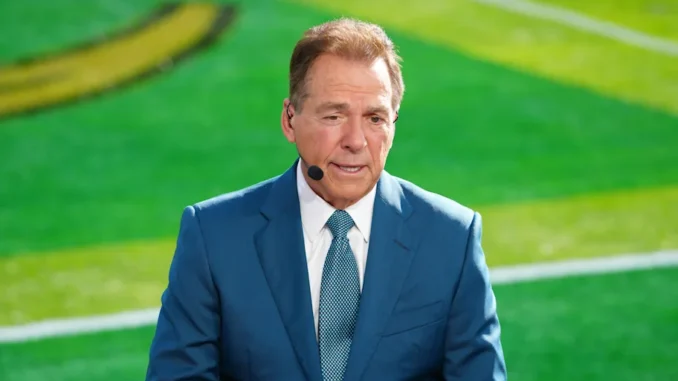
Nick Saban Reflects on the Unseen Factors Behind a Pivotal Career Decision
Evaluation:
Nick Saban is undoubtedly one of the greatest college football coaches of all time, but his career trajectory hasn’t always been smooth or without regret. One decision in particular—the choice to leave LSU for the NFL’s Miami Dolphins—has been the subject of scrutiny and speculation for years. Recently, Saban reflected on the move, shedding light on the nuanced factors behind what he described as a “mistake.

Fizzle Out:
At LSU, Saban built a powerhouse program, leading the Tigers to a national championship in 2003. His success in Baton Rouge made him a sought-after figure, and when the Miami Dolphins came calling in 2004, the allure of coaching at the highest level was hard to resist. Saban now admits that his departure from LSU wasn’t just about ambition—it was influenced by deeper, more personal considerations.
In a candid interview, Saban explained that his decision to leave LSU wasn’t solely rooted in the desire to prove himself in the NFL. Family played a significant role. At the time, Saban’s wife, Terry, had her own reservations about the intense spotlight of college football, which demands constant interaction with fans, recruits, and boosters. The NFL, with its more insular focus on football, seemed like an opportunity for a different lifestyle. “I thought it would be better for my family,” Saban shared. “But in hindsight, it wasn’t the right move.”
The transition to the Dolphins, however, was far from smooth. Saban’s two-year stint in Miami was marked by frustration and unmet expectations. Injuries plagued the team, and his attempt to sign Drew Brees—a quarterback who later became one of the NFL’s all-time greats—was thwarted by medical concerns. The result was a middling tenure that left Saban questioning his place in professional football.
Reflecting on the experience, Saban admitted that he underestimated the challenges of coaching in the NFL, where control over team dynamics is often limited compared to college football. “In college, you can recruit the players you want. In the NFL, you have to play with the cards you’re dealt,” Saban remarked. His inability to exert the same level of influence over the Dolphins roster left him yearning for the environment he had built at LSU.
“Saban’s Redemption: Lessons from the NFL to Alabama Dynasty”
Saban’s return to college football in 2007, this time at Alabama, marked the beginning of an unparalleled dynasty. While his success with the Crimson Tide has solidified his legacy, he doesn’t shy away from discussing the lessons learned from his brief NFL stint. “Every decision you make, you make with the best intentions based on the information you have,” Saban said. “But sometimes, those decisions teach you more than success ever could.

Saban’s story serves as a reminder that even the most accomplished leaders face moments of doubt and miscalculation. What sets them apart is their ability to adapt, learn, and ultimately turn those experiences into fuel for future success. For Saban, the “mistake” of leaving LSU became the crucible that forged his legendary career in college football.
Leave a Reply